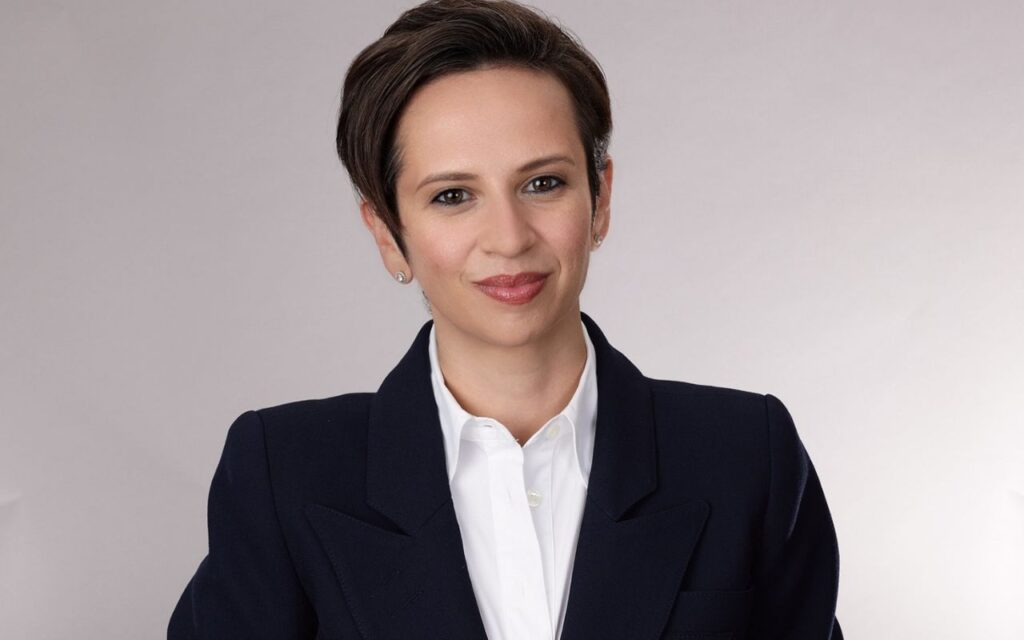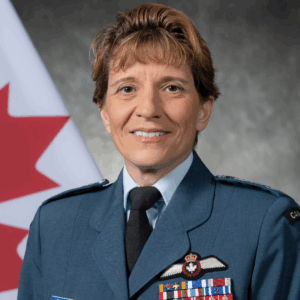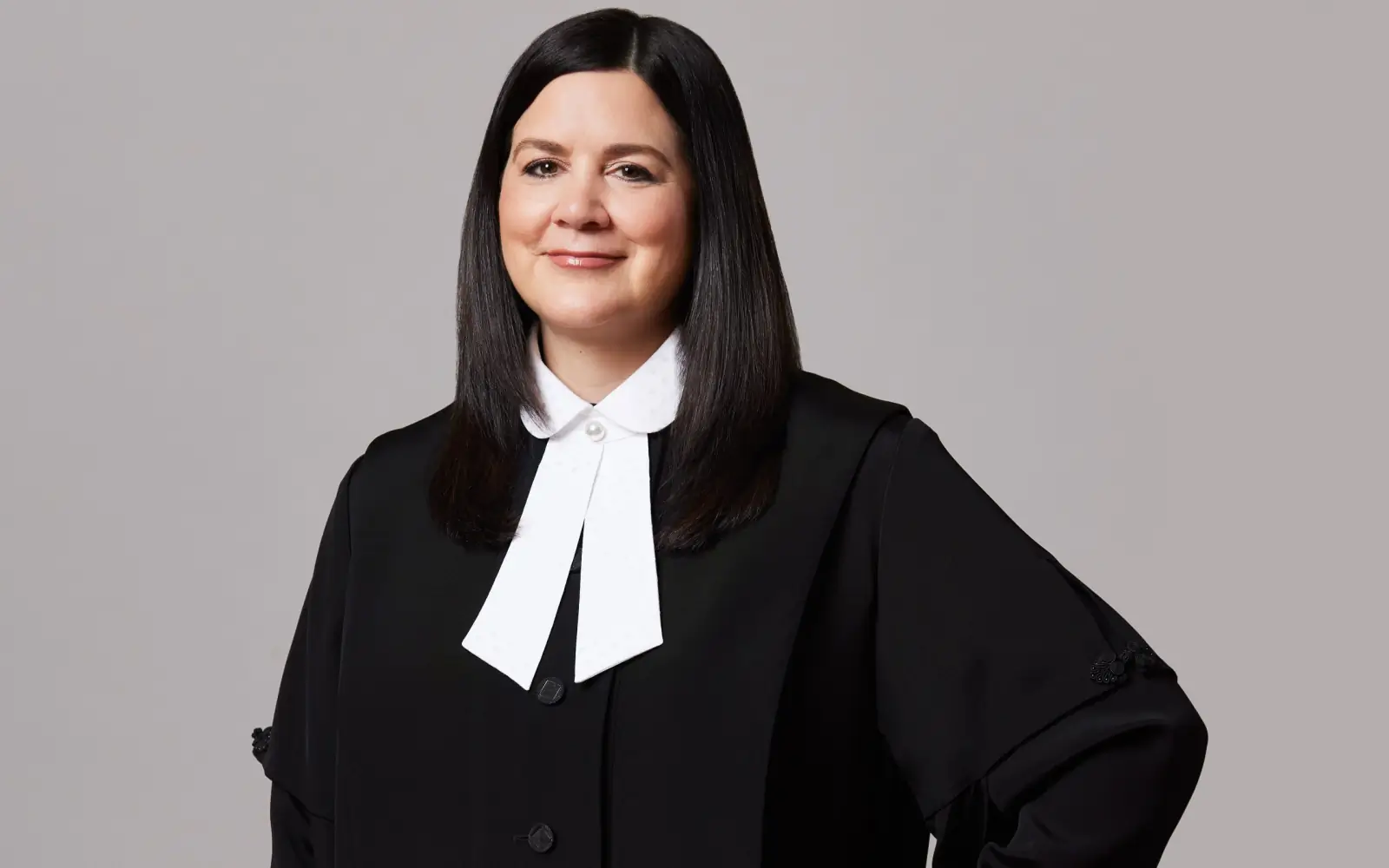Melissa Lantsman talks returning to The House of Commons, her path into politics, and lessons learned as a female leader
Today’s guest is no stranger to making waves – both inside and outside the House of Commons. Melissa Lantsman, Member of Parliament for Thornhill and Deputy Leader of the Conservative Party of Canada, is known for her straight talk, quick wit, and unflagging energy.
Before stepping into the political spotlight, Melissa was a powerhouse behind the scenes, shaping national conversations as a top political strategist and noted communications expert. In this episode, we dive into her journey in politics and leadership – but also explore the Melissa beyond the politics.

Catherine Clark: Melissa, this is great timing, because the House is about to resume. You’re heading back to Ottawa, and it’s going to be a super interesting and quite busy political season. We’ll be hearing a lot more from you over the next little while. But I want to start by rewinding a bit—what kind of kid were you growing up? In your writing, what were you like? How did that shape where you are now?
Melissa Lantsman: Two things. First, I had what I think was a super normal childhood – at least it felt normal to me. My parents came to this country in the mid-70s, and I was born in the mid-80s in the place I now represent. We grew up in a typical suburban house. We celebrated life events and family dinners, it was one of those homes where the door was always open. We went on vacations, I played sports, I did extracurriculars. I grew up in a really safe suburb of Toronto, which is Thornhill.
The other side of me was a bit more rebellious. I marched to the beat of my own drum – I dressed how I wanted, not how everyone else dressed. There was definitely that element of me. And I had super patient parents who supported anything I wanted to do, no matter how bad the idea might have been.
Jennifer Stewart: Two questions: did you run for student council, and did you ever imagine that you’d end up in Parliament?
Melissa Lantsman: I did run for student council, but I wasn’t what I’d consider today a “student council nerd.” I ran in elementary school, but in high school I was a bit more rebellious – though still very involved in extracurriculars. I did well in school, but it wasn’t my primary focus. I always had a lot of other things going on.
University was the same. I found it was a place where classes sometimes got in the way of everything else it offered.
I’ve also had almost the same group of friends my entire life, with just a few additions along the way. I’m really a product of a community that offered a lot – both through my religious community and through the publicly funded programs in the city of Vaughan. I grew up with camps, leadership programs, and anything I could sink my teeth into to figure out what I could do.
And I’m also the product of two parents who worked really hard. I only understood later the sacrifices they made so we could pursue anything we wanted in what they saw as a country of promise and opportunity, no matter who you were or what you wanted to do.
Catherine Clark: I want to pick up on that, because the way you described yourself as a kid really reminds me of who you are now. You’re still very independent, someone who follows your own path. On one hand, that must be really meaningful for your parents – because you tell a great story in your speeches about how hard they worked after coming here. It must be something for them to see that the child they sacrificed so much for is now in Parliament. Can you talk a little about their reaction when you decided to go into politics?
Melissa Lantsman: I’ll tell you this – the reason I talk about my parents so much is because it’s a form of therapy for me, and a way to memorialize them. I’m part of what I call the “young orphans club.” It’s a club nobody wants to belong to, but I lost both my parents – my mom just before I ran the first time, and my dad between my first and second election.
I share their story because it’s the story of so many Canadians. They came here with very different experiences. My father was an uncredentialed engineer who ended up driving a taxi and then starting a small business, simply because there weren’t other options. Going back to school and getting credentialed in Canada 50 years ago wasn’t really possible, and he needed to support my older brother. My mom, on the other hand, went to school here and built a more traditional white-collar professional life.
For them, success meant one of three professions: lawyer, doctor, or accountant – maybe engineer, but not much beyond that. So when I started showing an interest in politics, which happened quite young, they were flabbergasted. Not because they thought it was a dishonourable pursuit, but because they didn’t see it as a profession at all.
My dad used to joke that politics is just a hobby until you somehow turn it into a job – or in many cases, a career. For my parents, politics meant those Neo-Gothic buildings in Ottawa where long-established Canadians from noble families – people whose names ended up on universities – made laws. It felt completely out of reach.
I think they wanted to protect me, to shelter me, and to steer me toward something “safer.” But I knew politics was the way to change people’s lives. I believed it was important to see people who actually live the realities of this country represented in the political process. So I told them, “No, I’m in this – and I’m going to get you addicted to it too.”
And I did. My parents were a mixed marriage – my mom was a Liberal and my dad was a Conservative. By 2006, I managed to get my mom out knocking on doors with me. She absolutely loved it. I don’t know if it was because of me, or because she caught the political bug herself – but either way, she got it.
Catherine Clark: One thing you’ve really been praised for is your communication style – which isn’t surprising, since this was your métier for a long time. You’re super direct, sharp, and occasionally unapologetic in how you phrase things. Has that always been your style, or did you grow into that kind of confidence?
Melissa Lantsman: Yeah, look – if you do your homework, and you know your facts, and you know what you believe, then it’s about saying what you mean and meaning what you say. I was raised with a certain set of values, I’ve lived in this world, and I’ve gained experiences. To me, that’s how normal people talk to each other.
I’m less about talking points and more about having a real conversation. Right now, there are so many ways for people to engage in politics that you’ve got voices involved who might never have been part of this space before. Politics affects every facet of our lives, and we’re at a crisis point in this country. I think people are looking for authenticity – someone to talk to them the way you would in any other setting.
So I don’t really change my style whether I’m doing a podcast like this or speaking on the floor of the House of Commons. The only difference is that I’m a little louder there – and sometimes I lose my cool.
Jennifer Stewart: You are one of the first – if not the first – openly gay, Jewish women elected to the House of Commons. What has that representation meant to you personally? And have there been moments where you’ve really felt the weight of that visibility?
Melissa Lantsman: Look, I think it’s one of many labels I carry. I’m a child of immigrants, I’ve been successful in business, and now I’m in politics. All of those things give people a way to see themselves in me – and that’s how I think about labels in general.
But each of those labels also puts you in the line of fire with people who may disagree with or even resent them. And in the last couple of years especially, being a Jewish politician has been difficult. It’s not what I signed up for, but it is very real. It’s something my community – and communities across the country – are genuinely terrified about right now.
What I’ve tried to do is use my voice in a positive way: to give people hope, to give them some aspiration that things can change. Beating the drum on these issues forces people in power to pay attention. I think we’ve had some success on that front, though there’s still a very long way to go.
Catherine Clark: I’m going to be cautious here, because we are a non-political show. But we’ve just come through a really interesting year in Canadian politics – and global politics too. Your party was heavily favored to win the last federal election, but that changed over the course of the campaign, with lots of global events impacting things as well. Now you’re heading back into a new season of the House, still dealing with a really volatile environment. How does all of that affect you personally, as a human being—the ups and downs, the highs and lows, things coming at you from 60 different directions?
Melissa Lantsman: I’ll tell you the honest truth – and I don’t know why I’d be dishonest with you – I don’t think about it as much as I should, or as much as you might think I would. I’m one of those people who has a long-term vision and a long-term goal. I think many of those – including Pierre Poilievre, our party leader – share that vision for this country, and for me it’s about what we do to get there, every step of the way.
I’m not somebody who thinks this is about me. The truth is, there are so many people across Canada, from every walk of life, who are struggling in different ways. And yes, politicians are part of that, but we signed up for this. So I don’t have a lot of time for “woe is me.” My job is to be a voice for those who are struggling – for those who can’t pay their bills, for those who are left out of the job market, for newcomers who arrived here decades ago and still can’t work in the fields they trained in.
We’re in an immigration crisis, a cost-of-living crisis, a housing crisis. That is my primary focus. It’s less about how it impacts me. Maybe I should think about it more, but I find it distracting. So I compartmentalize it, put it away somewhere, and then I don’t really come back to it.
Jennifer Stewart: What advice would you give someone about tuning out the noise and focusing on your end game?
Melissa Lantsman: I think it’s a practiced skill. You almost have to be beaten down enough times that you learn to pick yourself up, persevere, and keep going. It’s about figuring out how to move from failure to the goal – or from failure to what you see as success.
Here’s the thing: people often see this perfect image of women who say, “You can have it all.” Their hair is done, everything looks flawless – but that just doesn’t exist. You can have it all, but not all at the same time. There are always trade-offs, and only you know what those trade-offs are. Only you can decide what matters less at a certain point, or what isn’t important right then.
There are a few things in my life that are absolutely non-negotiable – but very few, because this job doesn’t really allow for that. I know exactly what I gave up and what the trade-offs were in order to succeed. I think the more people recognize that reality, the easier it is to survive.









